The DLCs that gave us closure when the base game couldn't
How DLC can give developers more freedom to flesh out the stories we play.
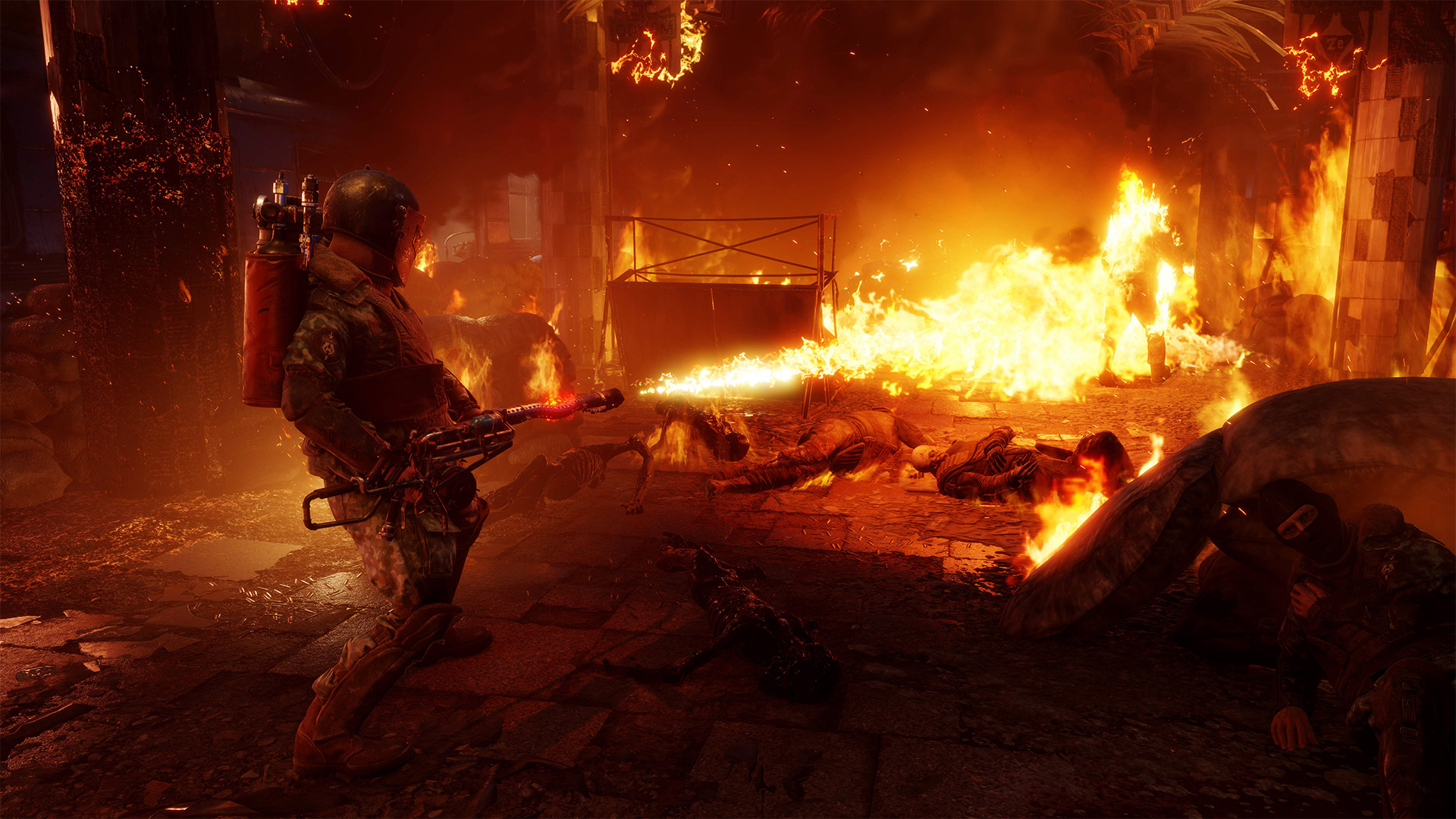
WARNING: Contains spoilers for Mass Effect 3, Metro Exodus, and Frostpunk
Endings are difficult. When you have to tie up every loose end, answer every question, and offer a climactic payoff so players feel their actions were significant, it starts to stretch the boundaries of what a single game can accomplish. It’s no wonder that, almost paradoxically, epilogues in the form of DLC are often more impactful than their main game’s ending. In Witcher 3’s Blood and Wine, I found Geralt’s well-earned retirement to Toussaint far more satisfying and reflective than defeating the Wild Hunt. In Fallout: New Vegas’ Lonesome Road, I think Ulysses’ reflection on player choice and that "If war doesn’t change, men must change" elevates it beyond even the base game in terms of its meta significance to the Fallout series.
DLC is a unique opportunity to both compliment and separate, for developers to shine light where there was no opportunity in the main game, but also create another layer of meaning which improves that base experience. Most significant of all, DLC offers us a chance to say goodbye: one last adventure or mission to grant catharsis, to both rationalise and commemorate the impact a game has on our lives.
Shepard's bye
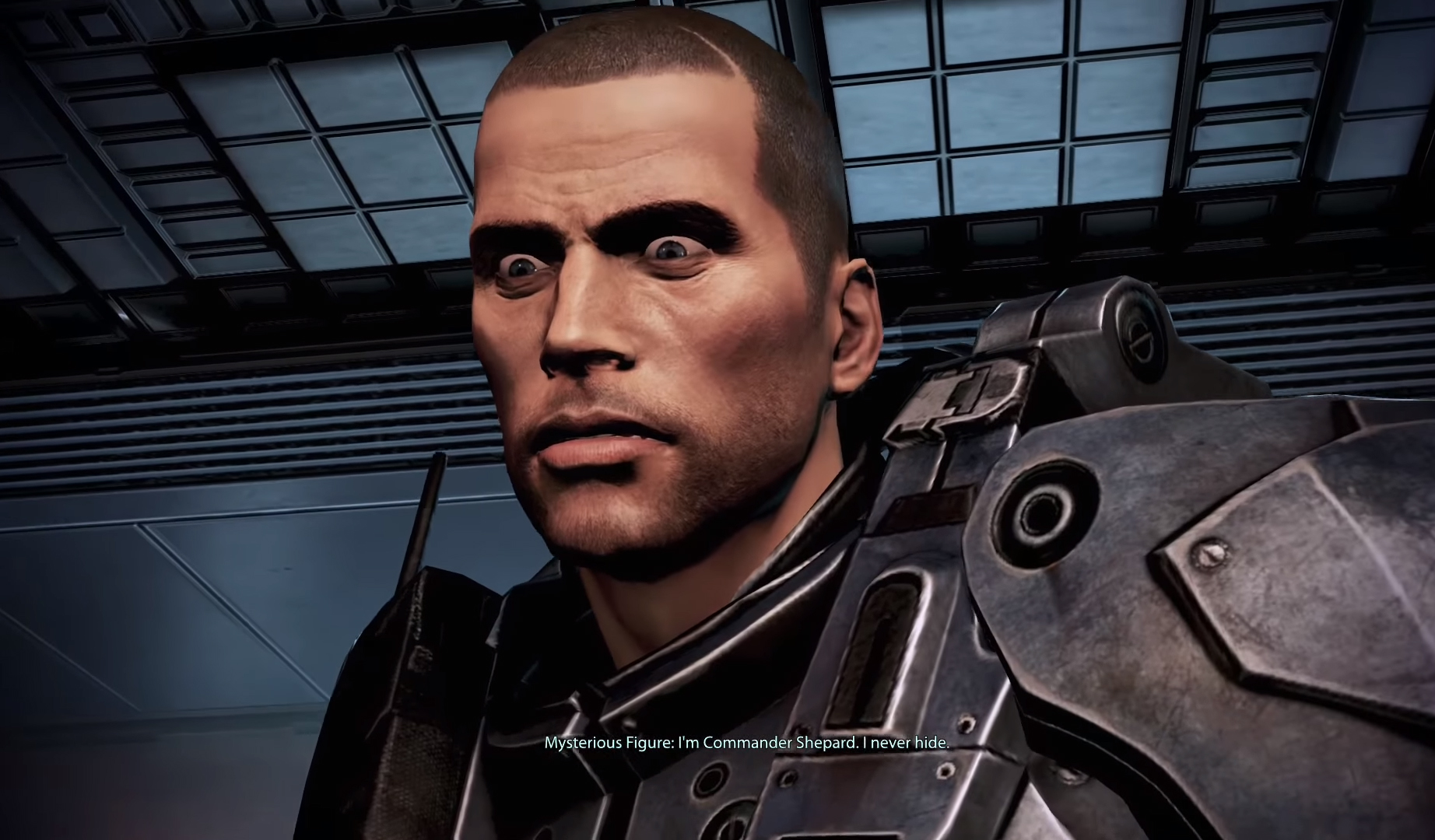
Reflecting on base games with ineffectual endings, you’d struggle to come across a title more relevant than Mass Effect 3. If anything, the initial uproar relating to that final paragon or renegade choice was based upon the fact it wasn’t personal; it told players little about their iteration of Commander Shepard or, more importantly, the connections they’d made along the way. Characters are the heart of Mass Effect, but as you pinball around the galaxy, racing against Reapers consuming all life on earth, was there time or space for a meaningful reflection of what those relationships meant to players?
"The ending of Mass 3 was very serious in tone," explains Chris Hepler, a writer on Mass Effect 3’s DLC. "It’s pretty much what you have to do, if you write an ending where the Reapers have fed two billion Earthlings into DNA juicers and everyone’s sacrificing themselves to ensure that the entire galaxy doesn’t share the same fate. But when the time came for the last DLC of the series, any dramatic conflict wasn’t going to top the galaxy-spanning scale of Mass 3’s climax. So we knew we had to make the big things small and the small things big. We had to make it more personal."
The result of that personal approach was Citadel, a DLC which allowed players to take shore leave with their crew on the bustling metropolis of Mass Effect’s hub station. It not only gave players a space to interact with their favourite characters, it offered a completely new side to them, only visible once the apocalyptic stakes of the main game were put on ice. But that doesn’t mean Citadel was without action. If anything, players were forced to battle their greatest foe yet: themselves.
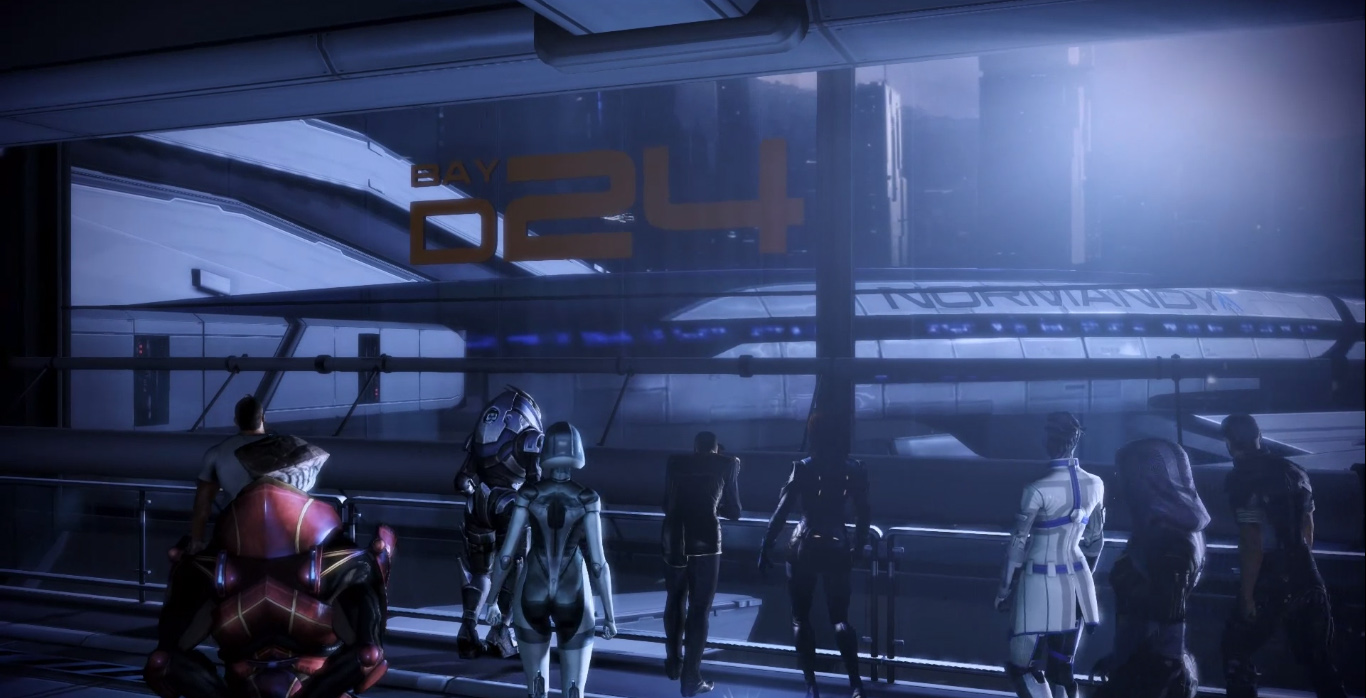
"When designing any villain or climactic battle, you ask yourself: what’s a great final fight that we haven’t seen before? The idea of Shepard battling a foe with powers based upon your choices naturally fed into the conflict of Shepard vs Shepard—a villain that was as much a dark reflection of the hero as you could get," says Hepler. "We asked ourselves 'why is the player going to have a good time triumphing?'. Because it’ll be the emotional payoff of all the connections and effort they made along the way. Shepard literally says in the final fight 'I got my scars on Feros, Noveria, Virmire, and Ilos. You got yours from a petri dish'. The clone thinks they have everything, but didn’t count on Shepard’s lived experience."
The biggest gaming news, reviews and hardware deals
Keep up to date with the most important stories and the best deals, as picked by the PC Gamer team.
Shepard vs Shepard is not only a reflection on your legacy as the character, but also upon how your Shepard is nothing without their supporting cast—friends, comrades, and lovers, who fight alongside you, share your ideals, and, if push comes to shove, will even die for you. It’s the perfect face-off for a DLC which calls attention to the relationships that have shaped who your Shepard has become. Though Citadel sees you share a variety of its amusements with those characters, one of its most important moments is the infamous party scene.
"The party took a long time to come together," explains Hepler "We speculated a lot about what happens when you put all these characters together in a room, and which combinations would be novel and amusing. Some had conflicts that felt natural—Grunt and Wrex headbutting each other, or James and Jacob having the push-up contest. Some took the proverbial ball and ran with it together like Zaeed and Garrus, or the nerds trying to recite the periodic table when dancing drunk.
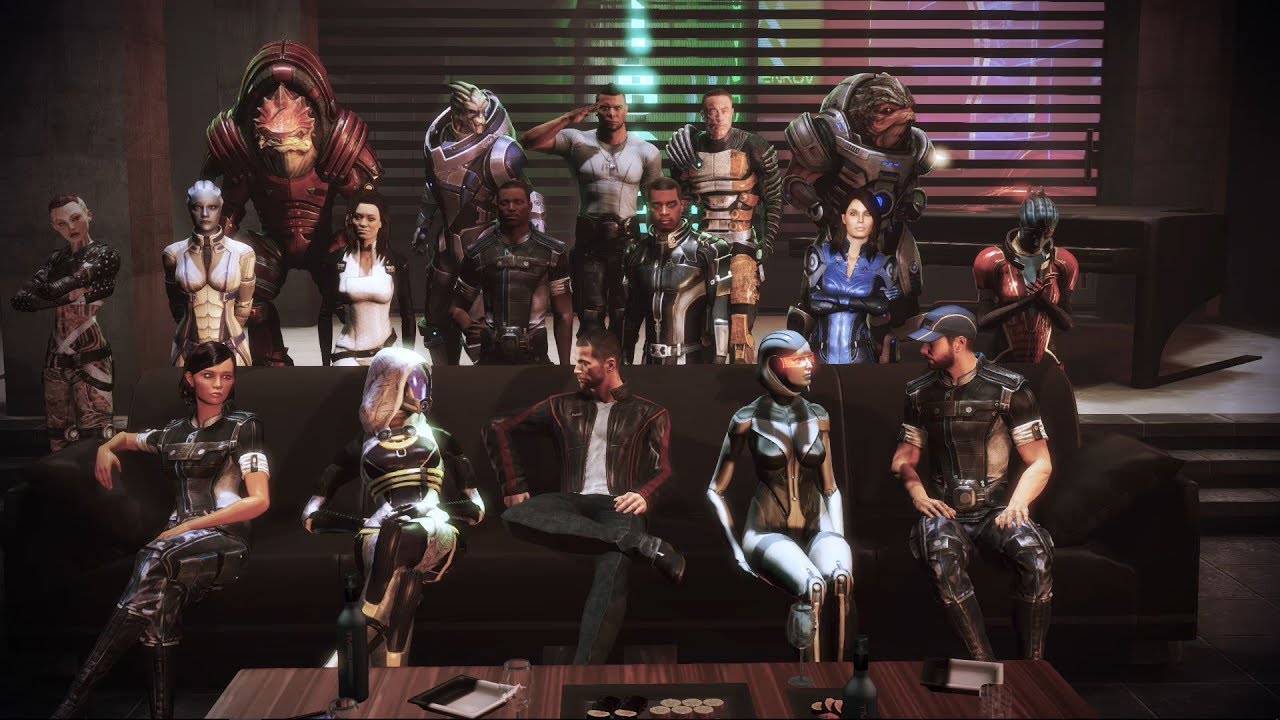
"We wanted to embrace all of it, right down to the jokes about how bad Shepard’s dancing was, or even the fans that wanted to slap Jacob."
In the final hours of Mass Effect 3, in the forward base in London, you get an opportunity to say goodbye to the series’ characters. But those farewells always felt wrong to me: too public, too self-aware, wrapped up in the galactic context of defeating the Reapers. Those sombre goodbyes felt like they were saying 'remember how these characters died'. But as a downloadable content, Citadel is more about giving you space to see how they lived. That no matter what happens in the end, there will always be this. You. These characters. This time.
"The scene that I still remember the most is easily Jack’s," recalls Hepler. "She says she wants Shepard to get a tattoo with her, but you find out it’s more than a drunken impulse. She says in their line of work, their bodies may be unidentifiable, and if they pull Shepard out from under some rubble, she’ll want to know the truth rather than be left hanging the rest of her life. Well... in the post-credits scene, the rubble twitches, and that tattoo takes on a different meaning as you realise Shepard and Jack may see each other again. There’s a psychological study out there that says what people most remember from their favourite entertainment media isn’t the plot, but characters. In the end, I think we made something that the whole team felt like they had ownership over, and that translated to many fans feeling like they’d done the right thing choosing to live with these characters for so long."
Tunnel vision

Closure is a broad term, and there’s a tendency amongst much DLC towards answering questions that the main game can’t, especially when there isn’t an appropriate perspective with which to do so. The Metro games, based on Dmitry Glukhovsky’s book series about a post-apocalyptic Moscow underground, have always centred around the character Artyom. But similar to the book series’ shifting perspectives, the games’ DLC has always explored the stories of its other characters.
"The Metro books provide a huge amount of lore, but the games themselves have many layers of narration," explains Jon Bloch, executive producer on Metro: Exodus. "DLC lets us step outside of the main games’ storytelling paradigm where the player, essentially, becomes Artyom and experiences the world though Artyom’s eyes. Each of our characters has something to tell... as well as something to hide. DLC allows us to tell those stories that Artyom simply never had a chance of hearing."
Each of our characters has something to tell... as well as something to hide.
Jon Bloch
An example of this is Two Colonels, a story which jumps back and forth between the perspective of Colonel Miller and Colonel Khlebnikov, the second in command of Novosibirsk’s metro. When players arrive in the haunted city in the main game, any survivors are long gone, save for Khlebnikov’s son, who gives you a vague account of its downfall. Two Colonels seeks to tell that story, but also—exhibiting another tendency of DLCs—explain how Khlebnikov’s sacrifice allowed Artyom to survive and the complete Exodus’ main story. This sacrifice also parallels Miller’s final act, which can be understood as a reclamation of power from the corrupt authorities who failed him.
"In both cities, the governments lied to the people they controlled for 'the greater good'. Yes, Moscow seems to be more fortunate than Novosibirsk but ultimately they are on the same path to ruin. Khlebnikov and Miller alike are just instruments in somebody else’s hands," explains Bloch. "The story of Novosibirsk does provide an important counterpoint to the story of Moscow Metro, but even more importantly, it fleshes out Miller’s motivation in his final decision to try and save Artyom’s life by sacrificing his own.”
Fall out
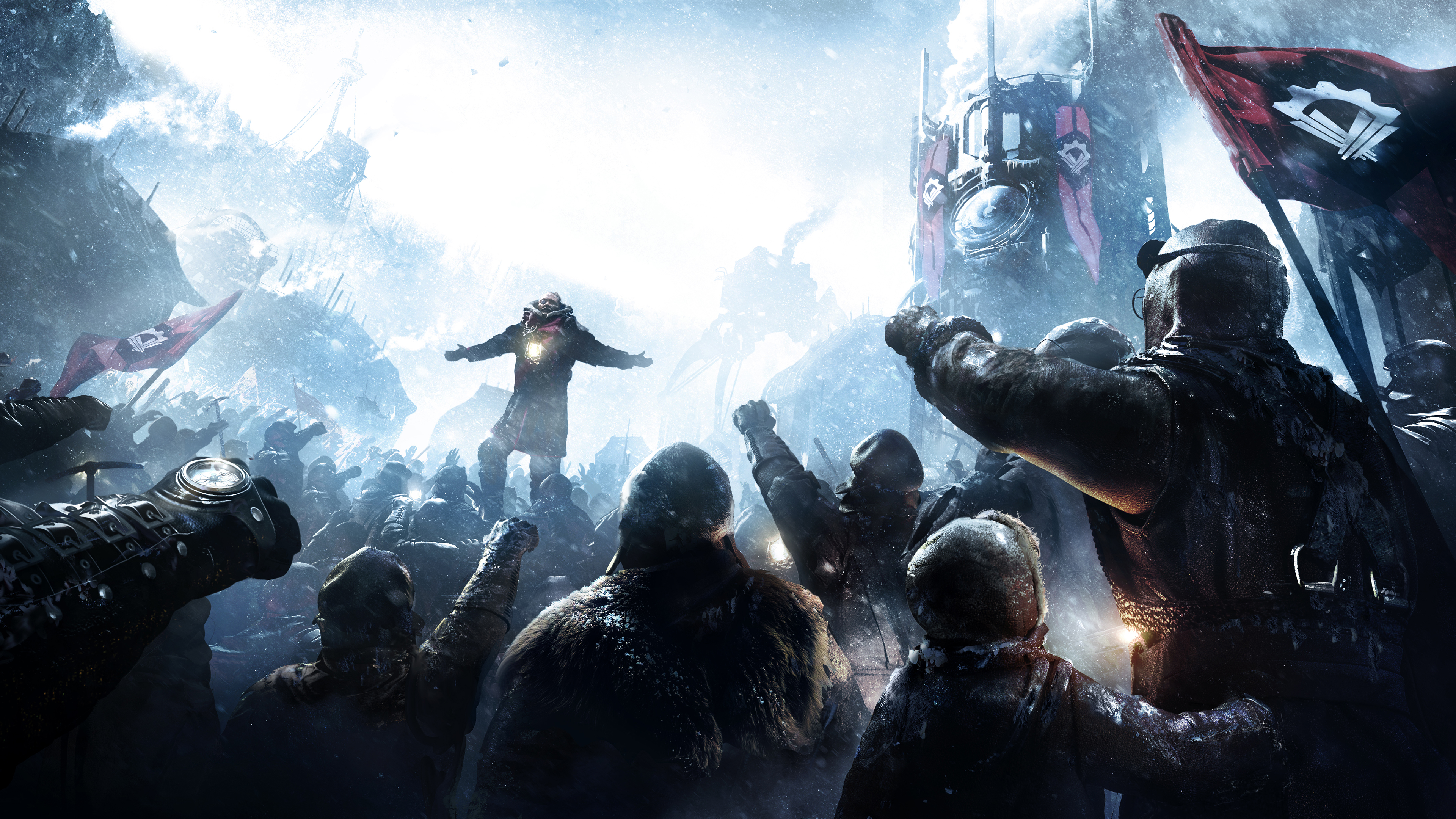
Narrative strategy game Frostpunk takes this prequel idea one step further, using its DLC to show us the very origins of its desolate setting. The base game’s scenarios are its tool for telling stories from across its icy, apocalyptic setting, inherently human tales about people undergoing the hardships of climate change and what they are willing to do to survive. But DLC The Last Autumn uses its different scenarios to tell the stories of those who made it possible for anyone to even have a chance of continuing on after the apocalypse, by building one of the colossal, life-sustaining generators which heat Frostpunk’s cities.
"The time before the Fall has this melancholy and allure of seeing the world with all its imperfections, but at the same time being fully aware of how it’s all going to end," says Jakub Stokalski, project lead on Frostpunk. "This tension allows us to push the emotional stakes in the scenario: you know what will happen to those who end up away from the safety of a generator. But at the same time, The Last Autumn is not only about this feeling of external danger. It focuses on whether you’re willing to make people sacrifice for others they might never meet."
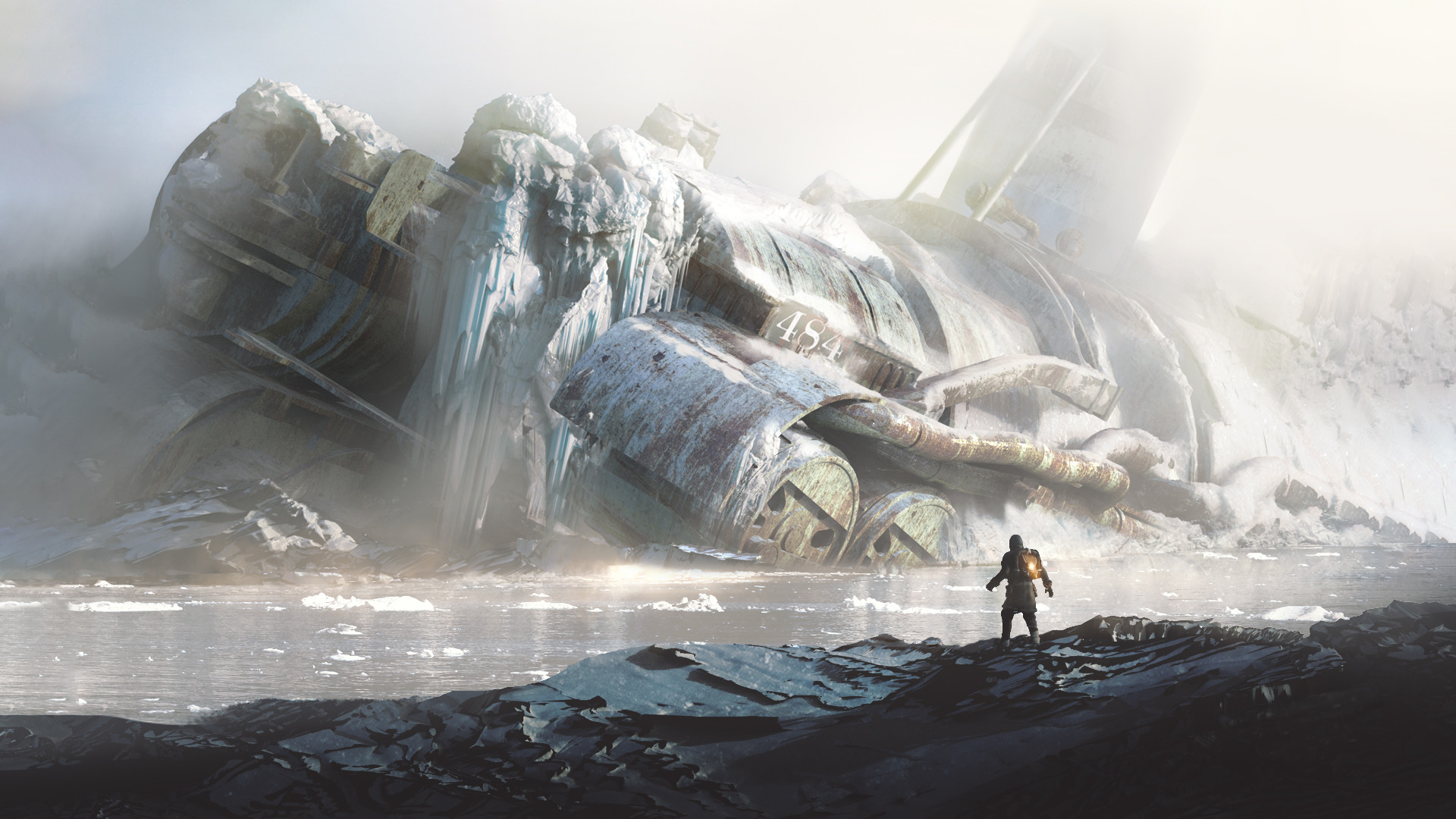
But as Stokalski also explains, Frostpunk’s icy setting is equipped to explore these stories. "This particular brand of an apocalypse—the Great Frost—demands people bunch up to survive, while at the same time everything around them dies, isolating them. Comparison to Fallout’s Vaults is quite apt. Each scenario has a very defined core. Refugees is about facing those who wronged you in the past from a position of power: will you abuse it, or reconcile old wrongs? The Arks are about duty: is an abstract and long-term goal of keeping a future for the planet more important than saving those in need here and now? It’s even more interesting if you think about the consequences: all of these enclaves have their own story, their own narrative, and different people will come out of them if they survive."
As all of these games demonstrate, DLC is an incredible tool for tying up loose ends: whether that’s providing players and developers a chance to say goodbye, allowing us to inhabit mysterious characters or resolve questions beyond the reach of a main game, or by creating a spectrum of stories, letting us better understand the game-world. As Stokalski reflects, it’s important we remember what DLC can do. "It’s easy to treat DLC as just post-release filler, especially in the era of games-as-service. I don’t see it that way. It’s nice to be able to focus on what matters most: creating meaningful, strong experiences, rather than wrangling with the frustrating realities of new title production. Post-release content can and should be a meaningful, viable part of a game in its own right. DLC should be worth a players’ time to play, and worth our time to make."
This article was originally published in PC Gamer magazine. For more quality articles about all things PC gaming, you can subscribe now in the UK and the US.

Sean's first PC games were Full Throttle and Total Annihilation and his taste has stayed much the same since. When not scouring games for secrets or bashing his head against puzzles, you'll find him revisiting old Total War campaigns, agonizing over his Destiny 2 fit, or still trying to finish the Horus Heresy. Sean has also written for EDGE, Eurogamer, PCGamesN, Wireframe, EGMNOW, and Inverse.

